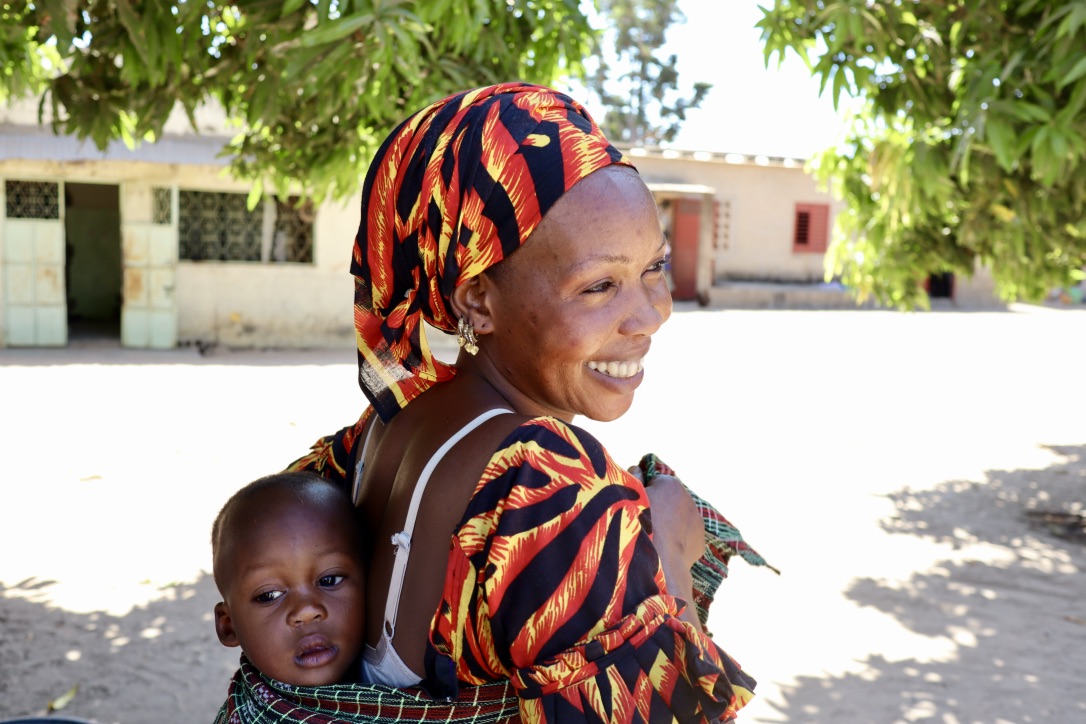We see them all the time when we work in polluted hotspots where, really, no one should be living.
We see them going about their daily, often back-breaking work, many times with children in tow.
These women are often too busy taking care of daily necessities to do anything else, let alone worry about their contaminated communities.
But these women are often the key to change. Once they realize their children are being poisoned, they are usually the ones who are the most eager to learn what they can do to keep their families safe, and to lead by example.
Below are some amazing stories of moms around the world:
Mongolia
Mrs. Mungun, who turned to artisanal gold mining to provide for her family after her husband died, trained to go mercury-free to protect her children.
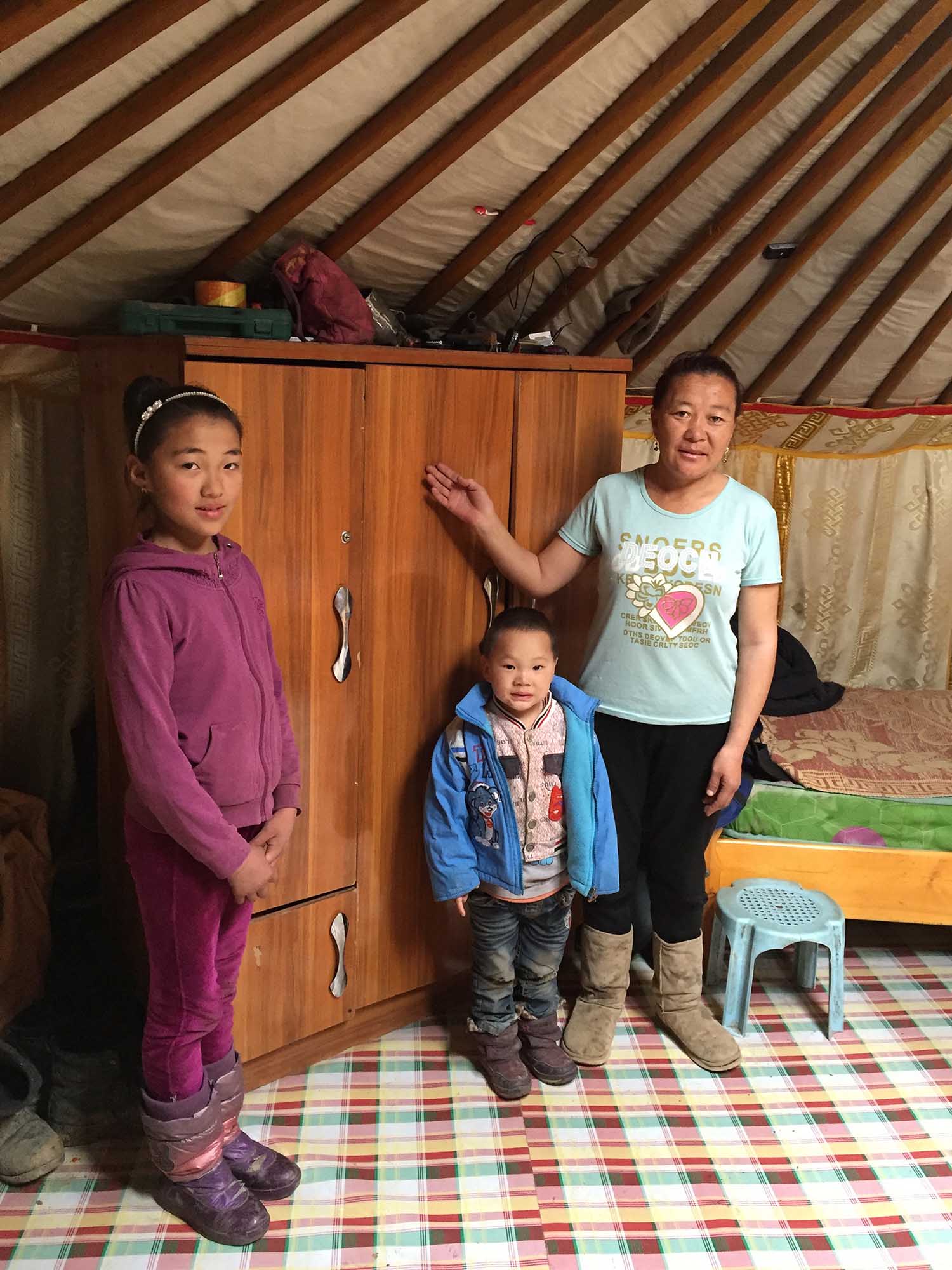 Mrs. Mungun proudly shows off the wardrobe she was able to buy for her children with her earnings as a mercury-free gold miner in Mongolia.
Mrs. Mungun proudly shows off the wardrobe she was able to buy for her children with her earnings as a mercury-free gold miner in Mongolia.
Mexico
Rosario, an artisanal potter, switched to using lead-free glazes in her workshop to keep her granddaughter safe.
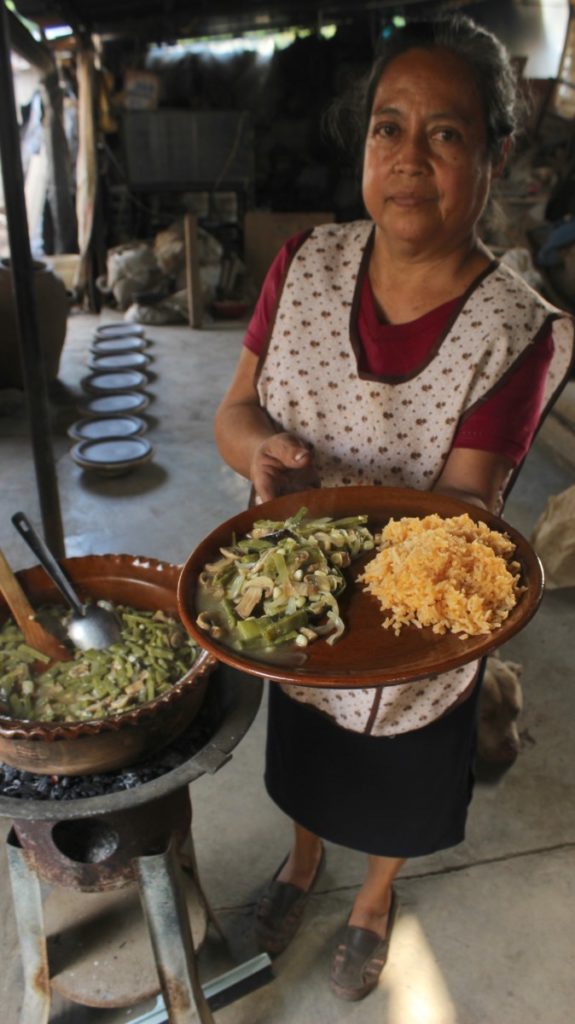 Rosario in her workshop in Mexico.
Rosario in her workshop in Mexico.
Senegal
In Senegal, mothers taught fellow mothers about the dangers of lead poisoning from the unsafe and informal recycling of lead-acid car batteries, so that they could avoid tragedies that mothers like Seynabou Mbengue endured.
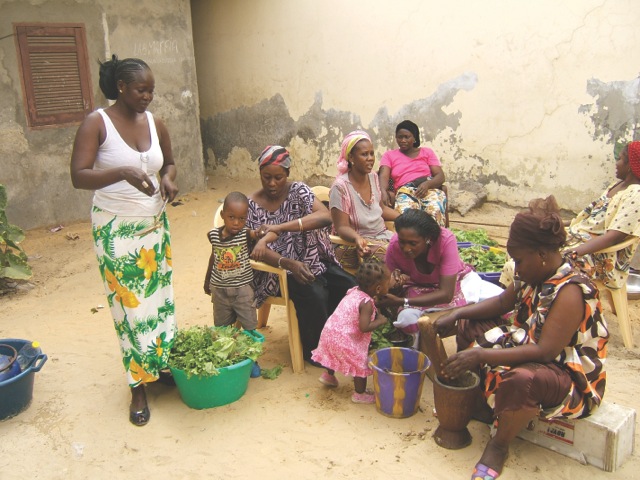 Women congregate in Thiaroye-sur-Mer, Senegal
Women congregate in Thiaroye-sur-Mer, Senegal
Indonesia
These gold miners in Indonesia are leading the way. Not only have they trained to go mercury-free, but they’ve now established a collective that we are helping to connect with local jewelers, who will buy their mercury-free gold.
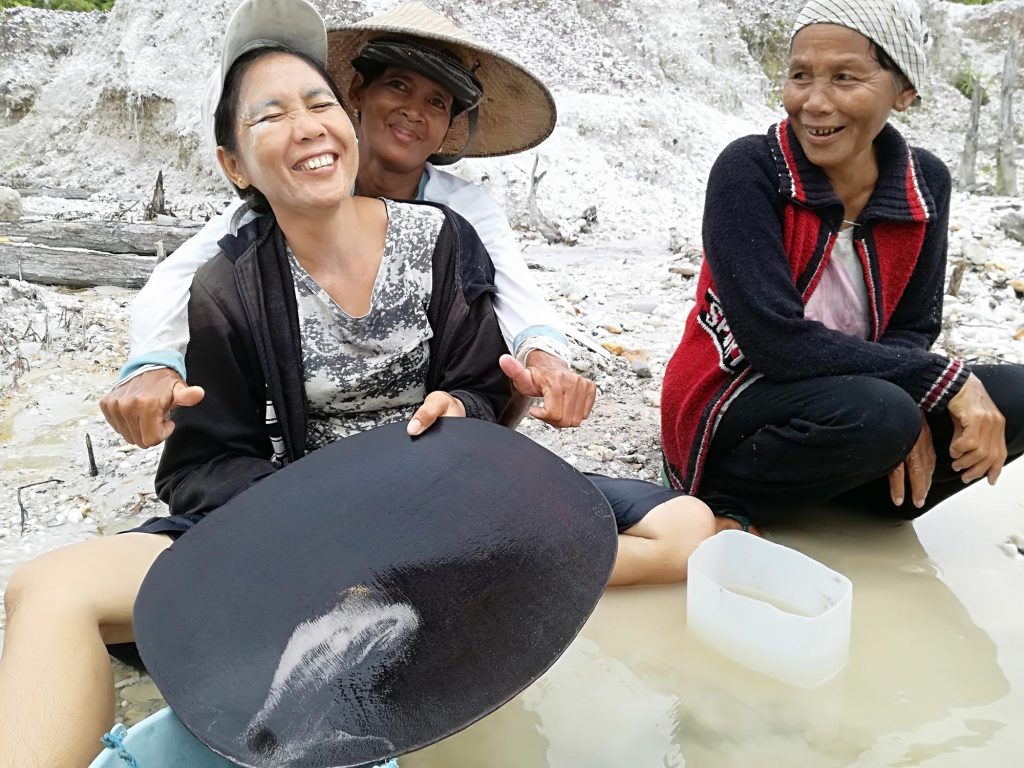 Empowering gold miners in Indonesia. Click on the photo to read more about these enterprising women.
Empowering gold miners in Indonesia. Click on the photo to read more about these enterprising women.
Did You Know…
... women and children in low- and middle-income countries are the most vulnerable victims of toxic pollution?
WHO reports that every year, environmental risks take the lives of 1.7 million children under 5 years.
In many communities, women are more at risk because they may be economically isolated, excluded from cooperatives or ownership positions or paid through back channels to work in their homes or backyards rather than in monitored, safer industrial environments.
And if women are affected, so are their families. Exposures to dangerous chemicals have a multigenerational impact on women, families and entire communities.
Learn why women hold the key to fighting pollution.
Snapshots of Moms Around The World
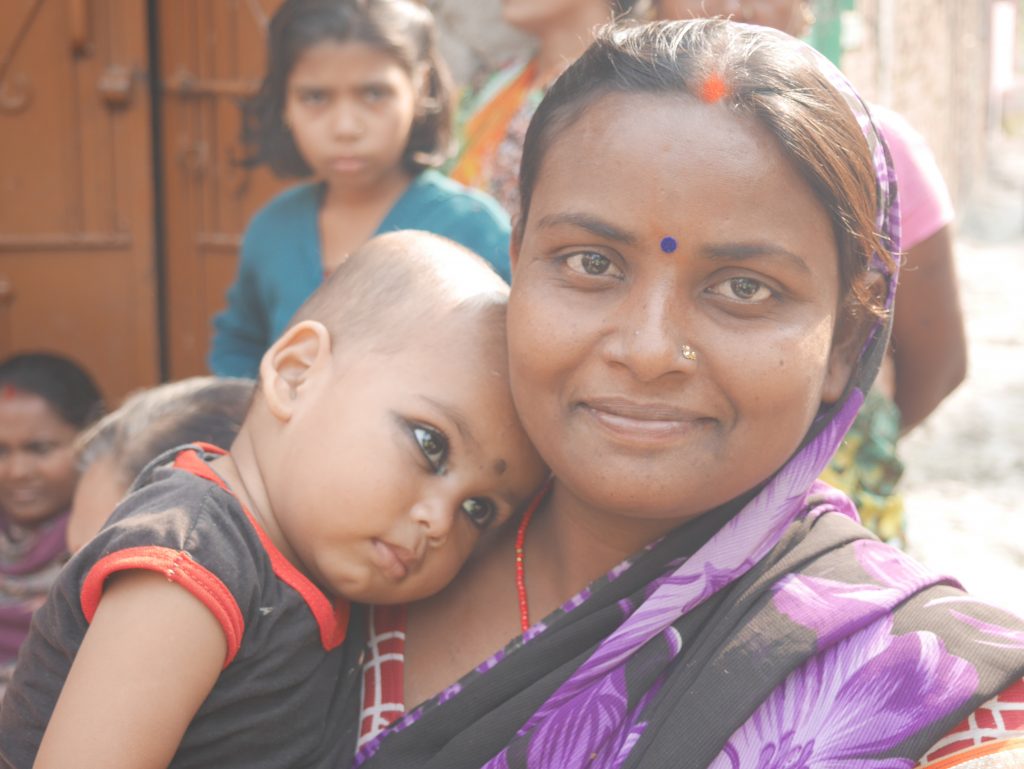 Mom and baby in Bihar, India. Click on photo to read more.
Mom and baby in Bihar, India. Click on photo to read more.
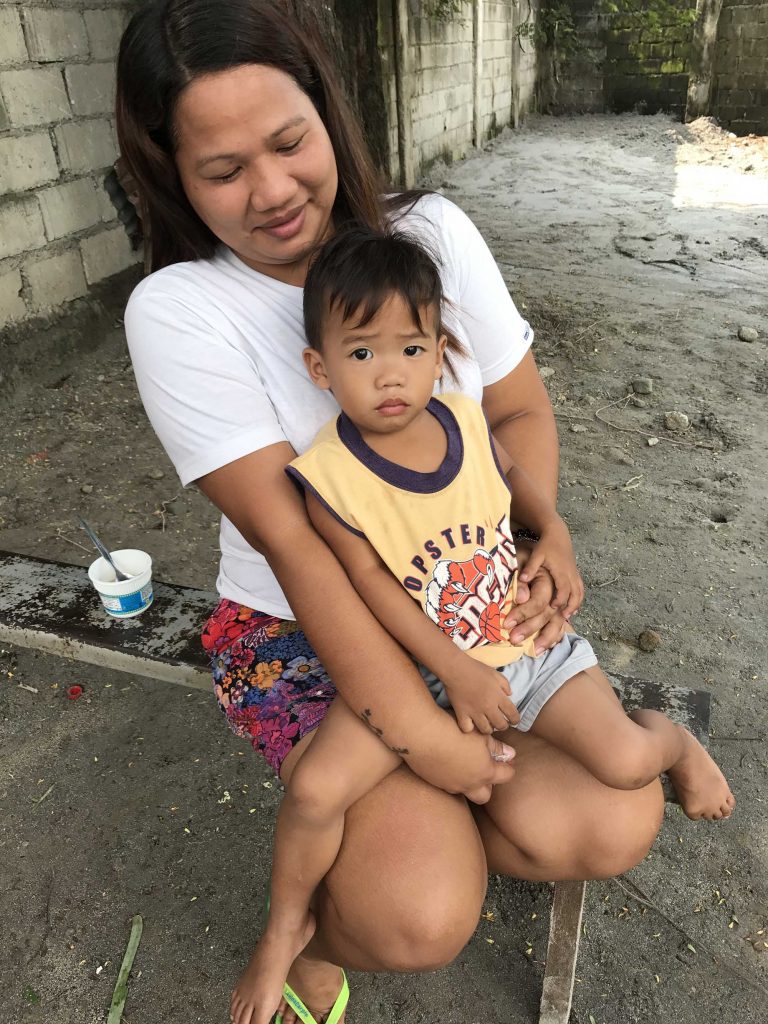 Two-year old Dexter with his mom in the Philippines. Click on the photo to read more about Dexter.
Two-year old Dexter with his mom in the Philippines. Click on the photo to read more about Dexter.
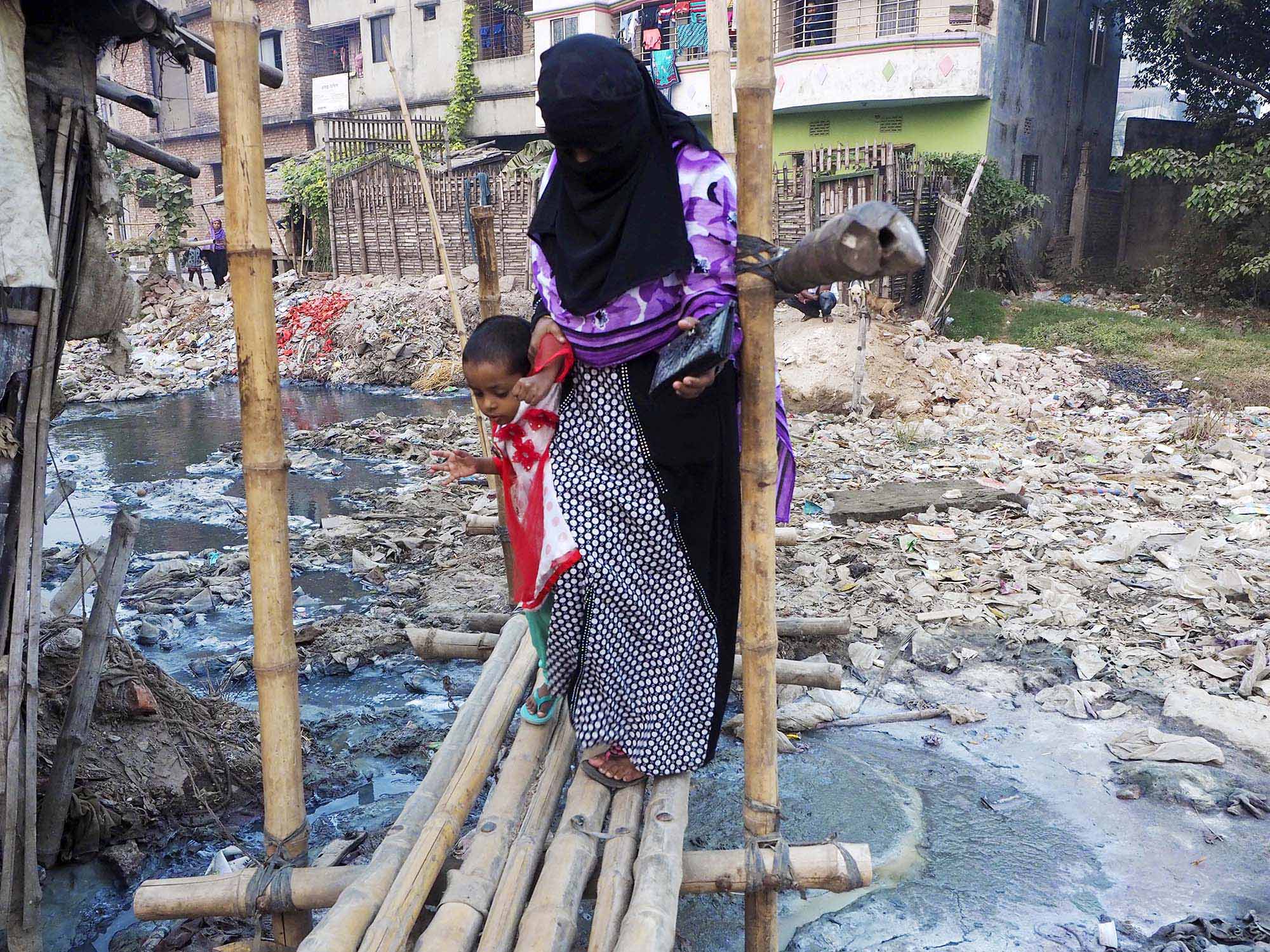 Residents of Hazaribagh, the tanning district of Dhaka, Bangladesh, make their way over a shaky bamboo bridge that spans an effluent canal carrying factory waste toward the Buriganga River. Photo: Larry C. Price.
Residents of Hazaribagh, the tanning district of Dhaka, Bangladesh, make their way over a shaky bamboo bridge that spans an effluent canal carrying factory waste toward the Buriganga River. Photo: Larry C. Price.
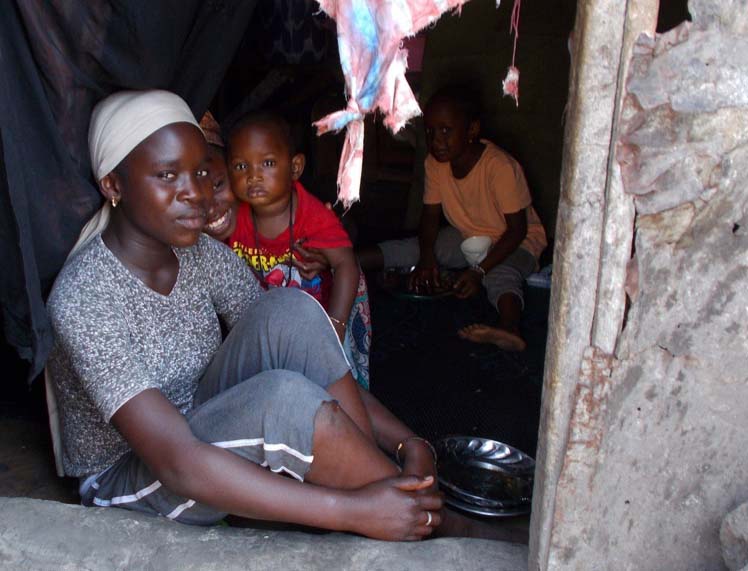 A family in Senegal living near a site suspected of being contaminated with lead from lead-acid battery and e-waste processing.
A family in Senegal living near a site suspected of being contaminated with lead from lead-acid battery and e-waste processing.
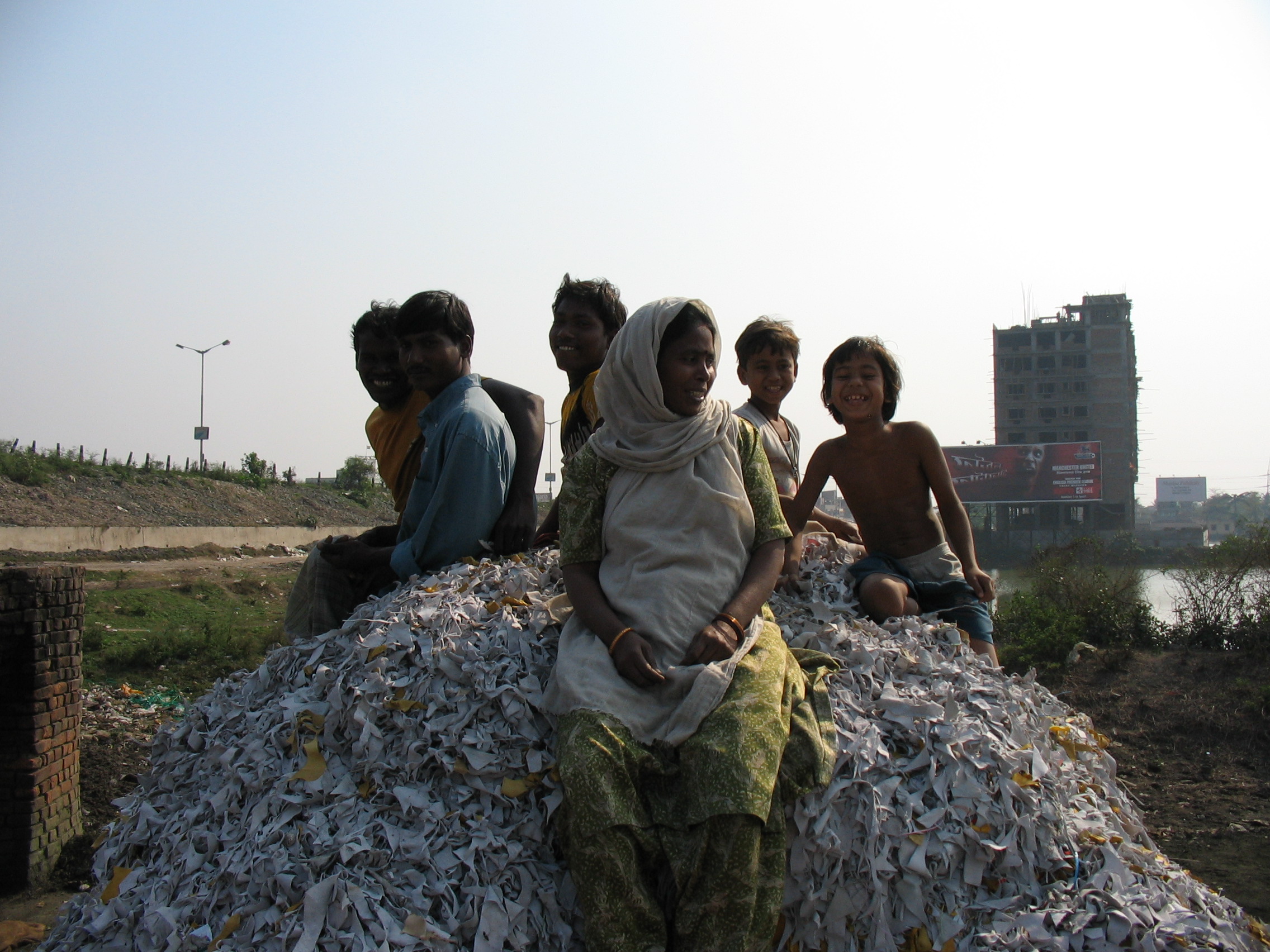 Taking a break from scavenging at a dumpsite in India.
Taking a break from scavenging at a dumpsite in India.
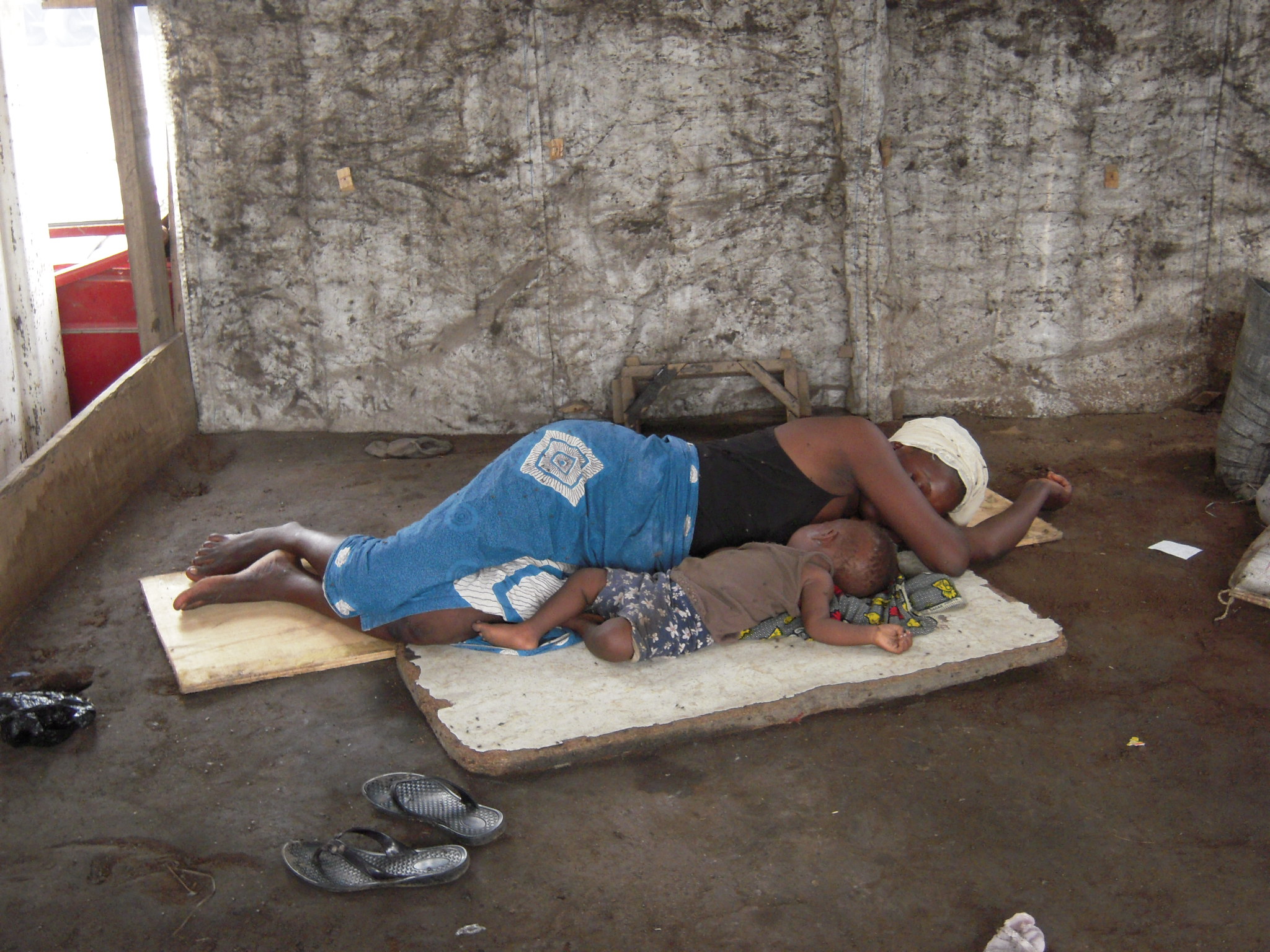 Mother sleeping with her child in the middle of Ghana’s Agbogbloshie market, near a large e-waste processing site.
Mother sleeping with her child in the middle of Ghana’s Agbogbloshie market, near a large e-waste processing site.
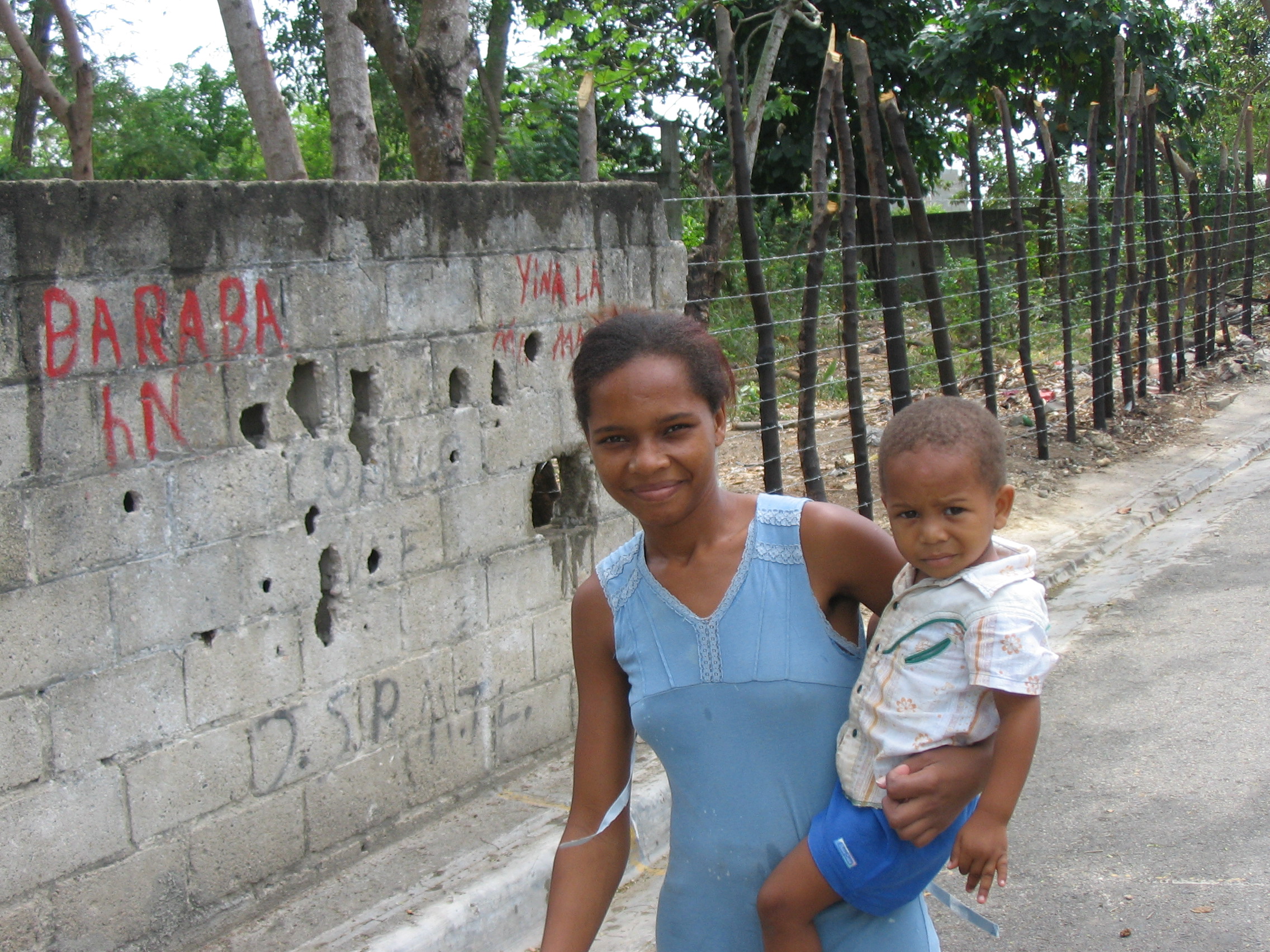 A mother and her child in the Dominican Republic near a lead-contaminated site.
A mother and her child in the Dominican Republic near a lead-contaminated site.
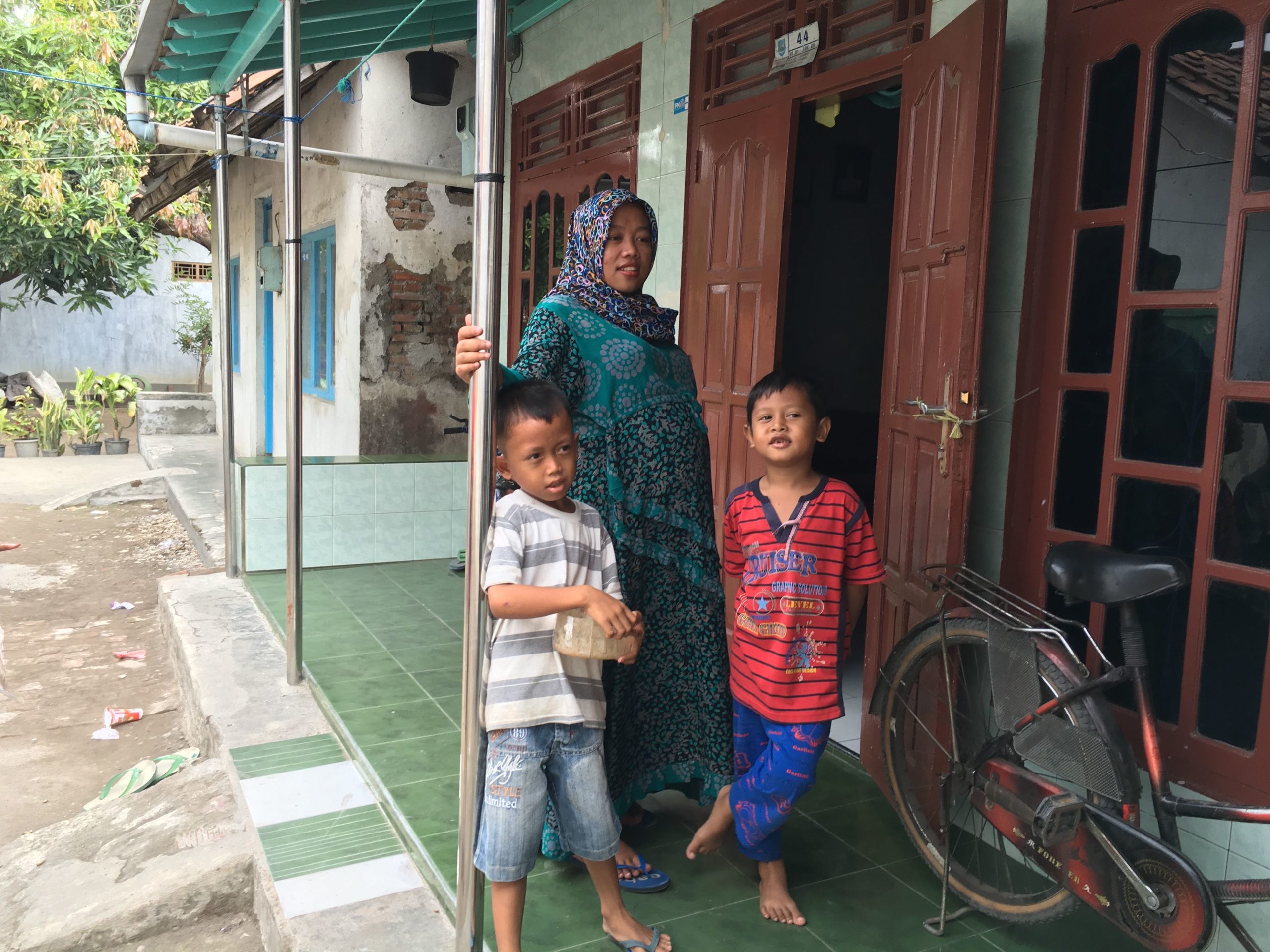 This pregnant mother in Indonesia is worried her fetus may be exposed to toxic lead.
This pregnant mother in Indonesia is worried her fetus may be exposed to toxic lead.
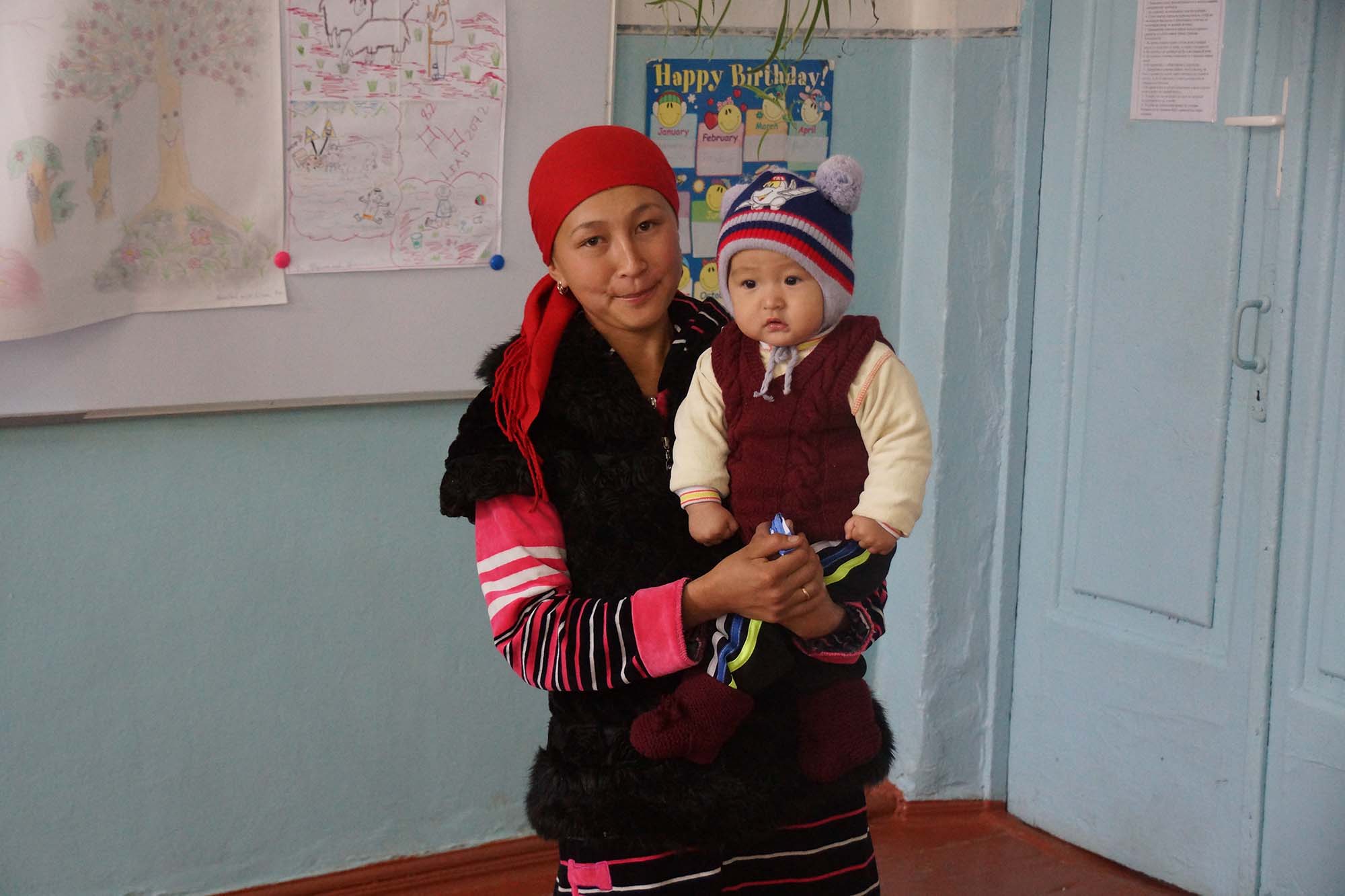 Mother and child at a school in Kyrgyzstan to watch an educational play presented by Pure Earth about the dangers of lead.
Mother and child at a school in Kyrgyzstan to watch an educational play presented by Pure Earth about the dangers of lead.
Learn more:



